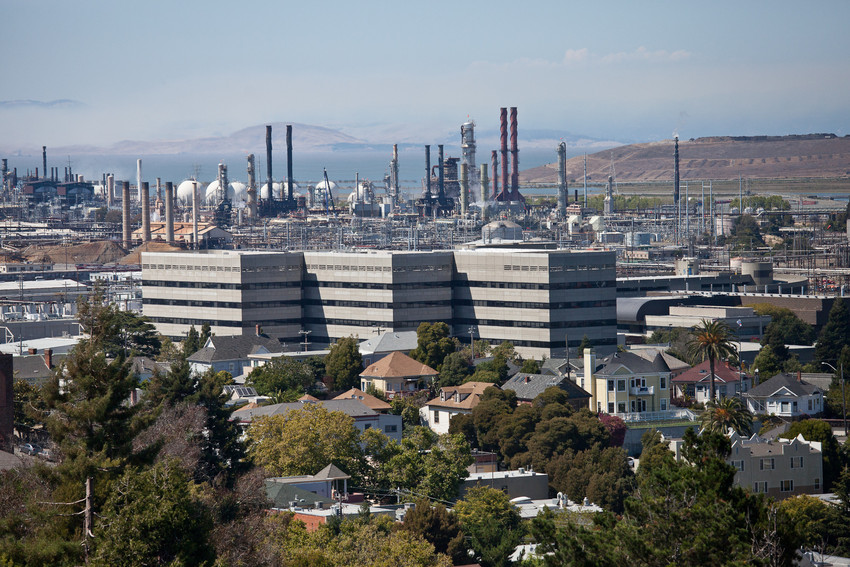Advocates argue the board should approve the change, if for no other reason than to honor the agency’s own stated mission of protecting and improving public health and air quality.
“I am asking the air district to stand with me for our mothers and our babies and to remain true to their mission,” said Dr. Teresa Muñoz, an obstetrician-gynecologist in Richmond, at a press conference last Wednesday held a few blocks from the Chevron refinery. “Please keep your word.”
Oil industry representatives, led by Chevron and PBF Energy, are urging the agency to reject the plan.
PBF says if the proposal is approved, it will be forced to shut down its Martinez plant, which it purchased from Shell early last year. Attorneys for Chevron say the data the air district staff used in creating the potential change is flawed.
“In short, this rulemaking has been procedurally defective, technically inaccurate, and the potential benefits of the proposed amendments are overstated,” Michael Carroll, a partner at Latham & Watkins, wrote on behalf of Chevron in an April 30 letter to the air district.
Cracking Units
At issue are key refinery components called fluidized catalytic cracking units.
The cracking units use a chemical catalyst to help break down heavy crude oil into lighter components for products like gasoline. During the cracking process, the catalyst is coated with a carbon material called coke, which is then burned off.
The air district says that procedure, part of normal daily operations at many large refineries, emits more particulate matter than any other part of the refining process and makes up a significant portion of each plant’s total emissions.
Proposal: Bring on the Scrubbers
The proposal before the 24-member air district board would amend Regulation 6 Rule 5, limiting the amount of particulate matter, ammonia and sulfur dioxide the cracking units emit.
The air district says the change could cut annual Chevron and PBF emissions of PM10 particulates by an estimated 400 tons — or 72% — from the recently reported level of 554 tons a year.
The proposal is not expected to affect Phillips 66 in Rodeo, which does not have a fluid catalytic cracking unit, or Marathon in Martinez, which is currently idled. Both refineries are being converted to produce renewable diesel fuel.
If approved, the rule would go into effect in five years, requiring Chevron and PBF to buy and install a system called a wet gas scrubber, a unit that Valero’s Benicia refinery already has. The scrubbers capture and remove pollutants by sending exhaust gas through sprays of scrubbing liquid. The district says the scrubbers can significantly reduce the particulate matter released into the air.
Dirty Air
Particulate matter is essentially what some experts call “dirty air,” which contains things like soot, dust and dirt.
Many Bay Area residents have become more familiar with the air quality concerns associated with particulate matter as a result of massive wildfires in recent years that have fouled the region’s air.
“Compelling evidence also indicates that fine particulate matter is the most significant air pollution health hazard in the Bay Area,” air district staff wrote in the agency’s report on the proposal. “Reducing particulate matter emissions can reduce mortality and increase average life span.”

